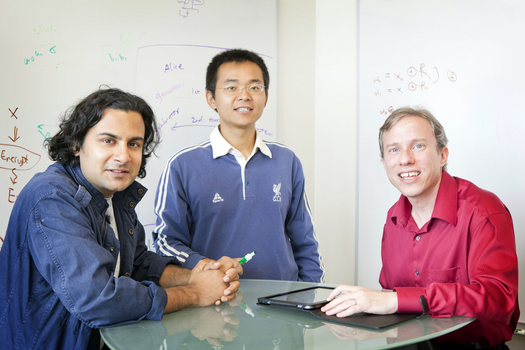The New York Times is covering Karsten Nohl’s work on vulnerabilities in cellular data networks: Hacker to Demonstrate ‘Weak’ Mobile Internet Security, New York Times, 9 August 2011.
Karsten Nohl, who published the algorithms used by mobile operators to encrypt voice conversations on digital phone networks in 2009, said during an interview he planned to demonstrate how he had intercepted and read the data during a presentation Wednesday.
Mr. Nohl said he and a colleague, Luca Melette, intercepted and decrypted wireless data using an inexpensive, modified, 7-year-old Motorola cellphone and several free software applications. The two intercepted and decrypted data traffic in a five-kilometer, or 3.1-mile, radius, Mr. Nohl said.
The interceptor phone was used to test networks in Germany, Italy and other European countries that Mr. Nohl declined to identify. In Germany, Mr. Nohl said he was able to decrypt and read data transmissions on all four mobile networks — T-Mobile, O2 Germany, Vodafone and E-Plus. He described the level of encryption provided by operators as “weak.”
In Italy, Mr. Nohl said his interceptions revealed that two operators, TIM, the mobile unit of the market leader, Telecom Italia, and Wind did not encrypt their mobile data transmissions at all. A third, Vodafone Italia, provided weak encryption, he said.

Technology Review also has an article: Researchers Hack Mobile Data Communications, Technology Review, 10 August 2011.
Phones might be the most familiar devices affected by the research, says Karsten Nohl, founder of Security Research Labs, a Berlin-based research consultancy that conducted the work. But the standard is also used in some cars, automated industrial systems, and electronic tollbooths. “It carries a lot of sensitive data,” Nohl says.
Security researchers haven’t looked at the GPRS standard much in the past, Nohl says, but since more and more devices are using GPRS, he believes the risk posed by poor security is growing.
Nohl’s group found a number of problems with GPRS. First, he says, lax authentication rules could allow an attacker to set up a fake cellular base station and eavesdrop on information transmitted by users passing by. In some countries, they found that GPRS communications weren’t encrypted at all. When they were encrypted, Nohl adds, the ciphers were often weak and could be either broken or decoded with relatively short keys that were easy to guess.
The group generated an optimized set of codes that an attacker could quickly use to find the key protecting a given communication. The attack the researchers designed against GPRS costs about 10 euros for radio equipment, Nohl says.
The Register also has this story: Hackers crack crypto for GPRS mobile networks, The Register, 10 August 2011.
The details will be presented at Chaos Communications Camp today (August 10).




